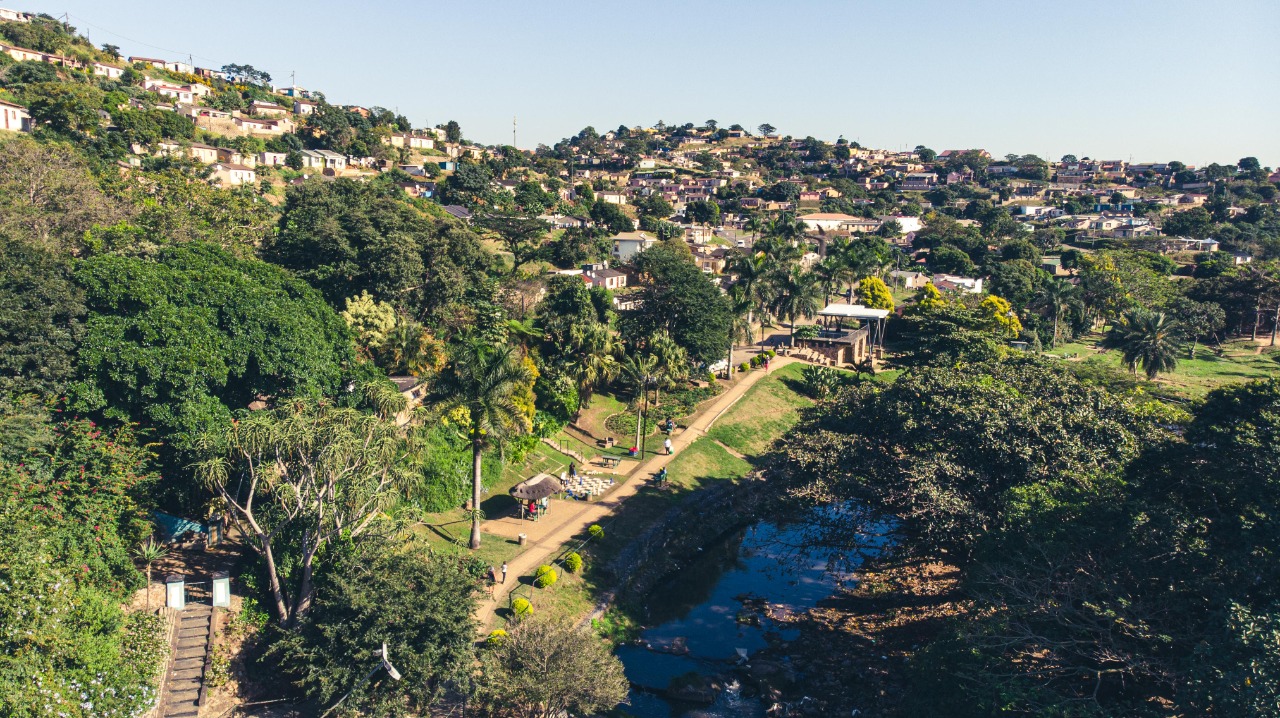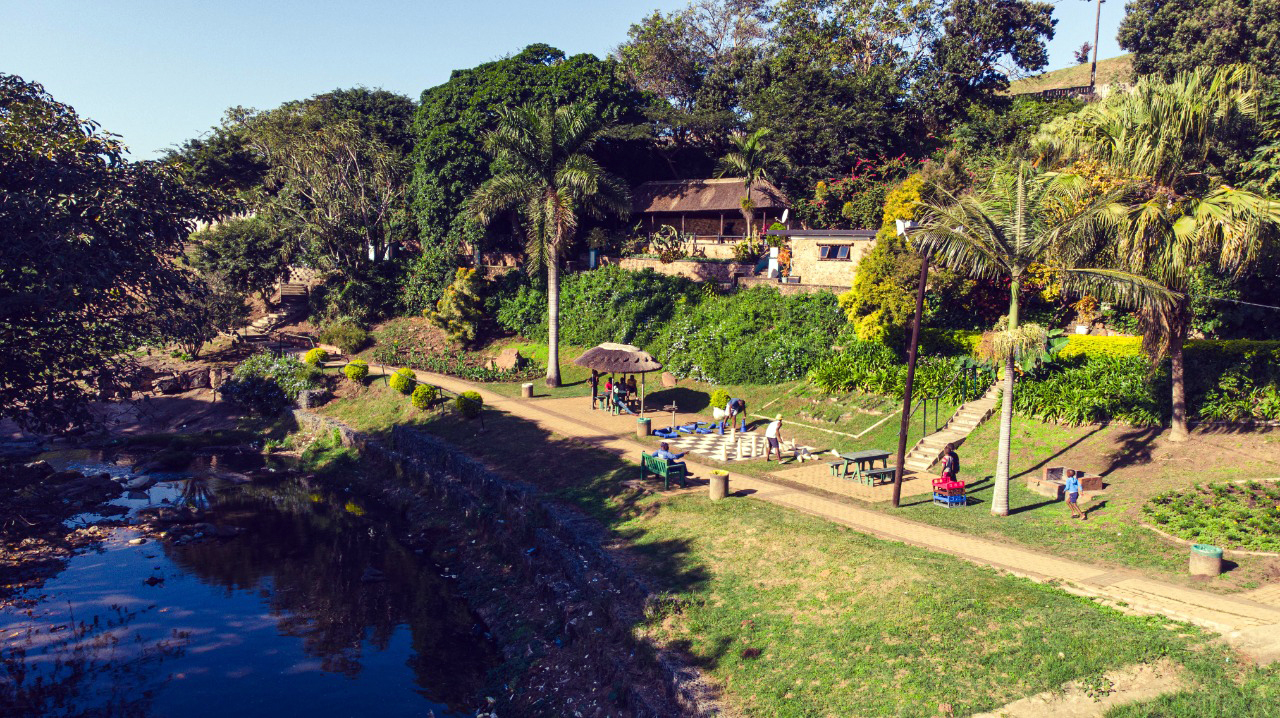South Africa: cooperation in action The transformation of Durban’s rivers
In response to these events, the city authorities are gradually extending a pilot system for river management to cover 7,400 kilometres of riverine systems across the city. In addition to preventing flooding, the system is also meant to boost the local economy with a view to creating jobs and new avenues for private investment. The affected communities and neighbouring districts as well are directly involved and are encouraged to participate in the implementation of the city-wide strategy, especially through ecosystem-based adaptation to climate change.
These ideas play an important role in the strategic design of Durban’s river management system. Together with the UK Department for Business, Energy and Industrial Strategy (BEIS), the US Agency for International Development (USAID) and the Children’s Investment Fund Foundation, the BMZ is supporting the city through German development cooperation via the C40 Cities Finance Facility (External link) (CFF). The goal of the CFF is to help cities develop their own bankable infrastructure projects for reducing greenhouse gas emissions and to strengthen their resilience to climate change.
Climate-resilient rivers
A river course in Durban, South Africa
The aim of Durban’s Transformative River Management Programme (TRMP) is to build up a resilient network of water systems by involving neighbouring municipalities. The TRMP is increasing the city’s resilience: it is reducing the impacts of floods and the damage to residential and industrial areas significantly, preventing the loss of human lives and of livelihoods, and at the same time creating hundreds of cooperatives and thousands of jobs. Durban is thus an example for how community-based river management services create economic opportunities for citizens and strengthen social capital. This is being done by improving the river infrastructure in all areas, for example by creating space for nature and leisure, and by improving the water quality.
At least one billion euros is needed over a period of ten years in order to formalise, adapt and design new sustainable community projects along the river banks. The TRMP funding model therefore seeks to convince a range of donors to make the necessary investments: including the communities themselves, businesses, land owners in Durban and global climate financiers. In order to achieve this, the CFF is supporting cutting-edge technologies like computer-based vulnerability assessments and hydrological monitoring.
Transformative impact through scaling up
A river course in Durban, South Africa
In the first step, the joint efforts of the CFF and Durban led to the city’s programme budget being increased: 1,000 kilometres of riverine systems are now covered, which is more than three times the initial target. As a result, the number of riverside communities able to benefit from the economic opportunities and improved resilience has more than tripled.
With multi-pronged CFF support through technical studies, capacity development and knowledge-sharing, Durban has been able to formalise the TRMP and include it in the city budget. Going beyond Durban, the CFF has also supported access to funding for agro-ecological projects in the uMhlangane river basin area. In addition, more than 15 other cities in South Africa, Tanzania and Senegal are exchanging information and knowledge with Durban. Based on these experiences, cities and municipalities across Africa will be able to learn how they can use climate adaptation for sustainable economic models.
As at: 27/09/2022

